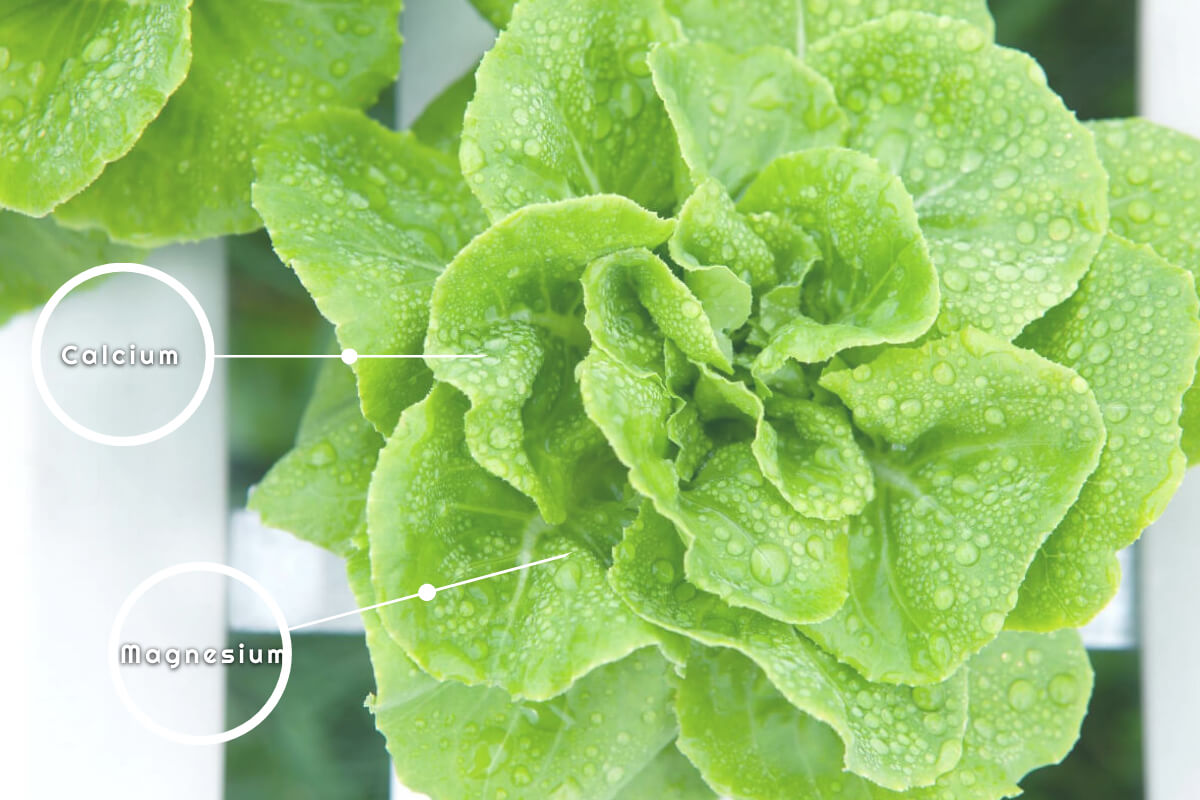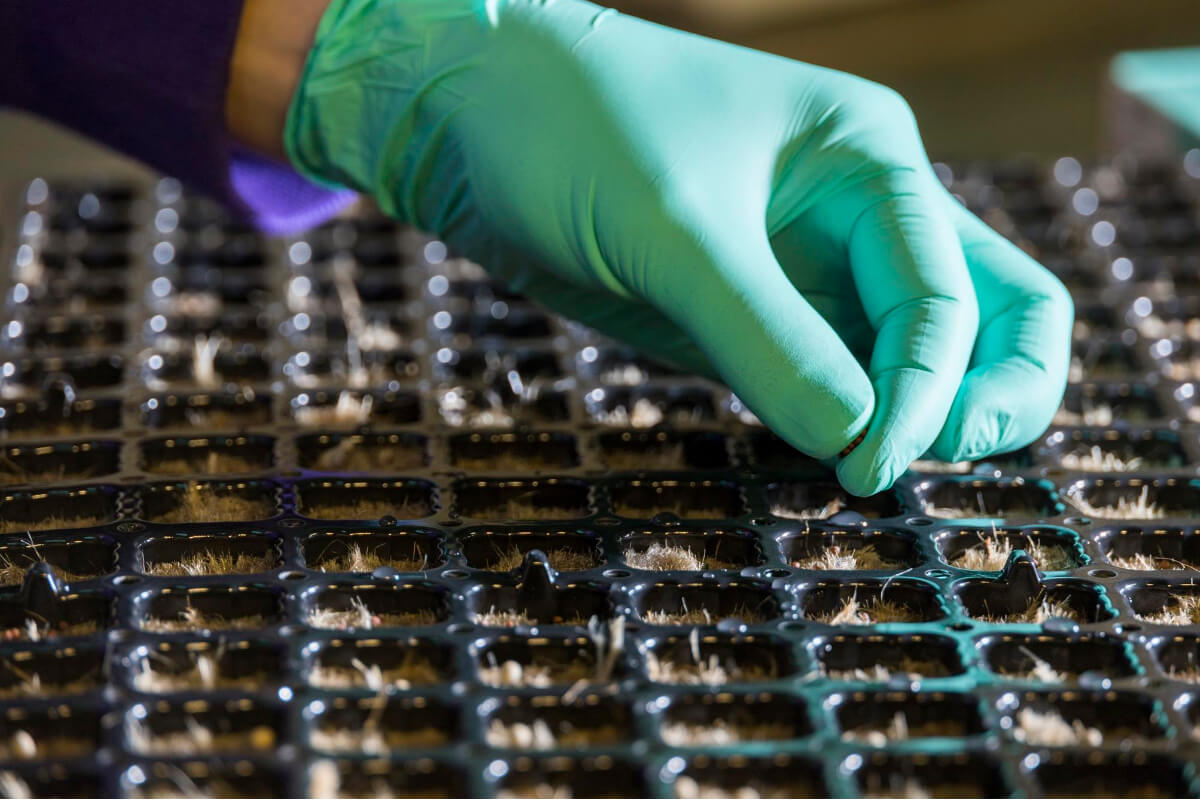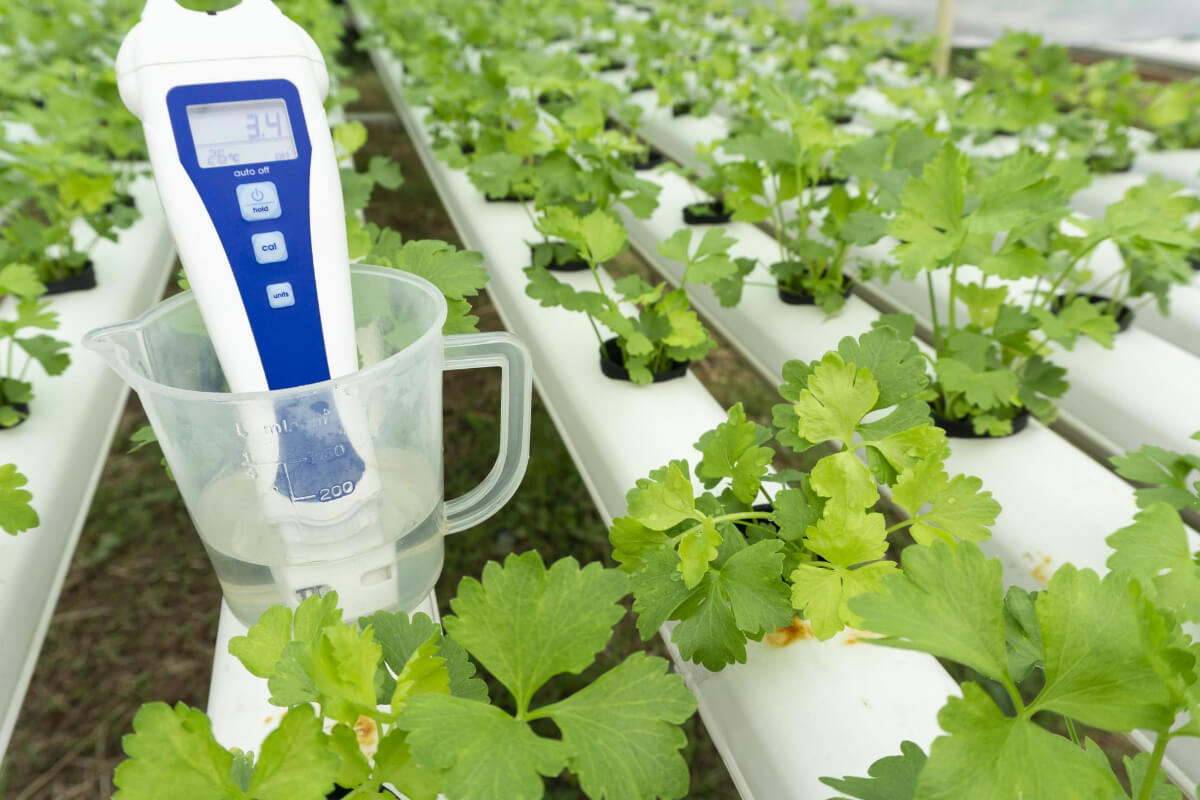If you’re an avid hydroponic gardener or just getting started, you most likely know that hydroponics has many advantages over traditional soil-based gardening.
The ability to completely control the amount of nutrients your plants receive is one of the main benefits of hydroponics, which can promote quicker growth and healthier crops. However, it also entails great responsibility.
Understanding the precise nutrient needs of your plants and giving them the proper combination of nutrients are crucial for achieving the best outcomes. What essential nutrients are needed for hydroponic growing systems?
The essential macronutrients and micronutrients that your plants require to survive in a hydroponic environment are broken down in this article.
From nitrogen and phosphorus to calcium and magnesium, we’ll cover the basics and provide tips for ensuring your plants get the nutrients they need to flourish. So, let’s get our hands dirty and dive into the world of hydroponic plant nutrition!

Essential Hydroponic Nutrients
The essential macronutrients for growing plants hydroponically are:
- Carbon
- Hydrogen
- Oxygen
- Nitrogen
- Phosphorus
- Potassium
- Calcium
Plants will get carbon, hydrogen, and oxygen from the air and water.
The plant receives nitrogen, phosphorus, and potassium from an organic or synthetic fertilizer through the roots. This mixture is usually called NPK (Nitrogen, Phosphorus, Potassium).
There are also secondary nutrients calcium and magnesium. A smaller amount of these nutrients are needed than macronutrients, but more than micronutrients.
Micronutrients are essential for plant growth but are needed in smaller quantities than macronutrients, hence the name.
The essential micronutrients include:
- Zinc
- Nickel
- Boron
- Copper
- Iron
- Manganese
- Molybdenum
- Boron
- Chlorine
Hydroponic plants absorb micronutrients through roots via osmosis, just like they do with the macronutrients.
1. Nitrogen
Nitrogen is necessary for plants because it helps plants absorb the water it needs.
Nitrogen can be found almost everywhere in the plant: the roots, plant tissue, leaves, and grain. Plants can access nitrogen in three different ways: ammonium, nitrate, and urea.
2. Phosphorus
Phosphorus helps plants produce healthier seeds and provides strength and structure in the plant’s root structure. Without phosphorus, plants could not do photosynthesis, cell division, and root transport.
3. Potassium
Potassium plays a major role in plant nutrition. It activates several enzymes and is an important cation that protects the anion-cation balance. Potassium is found within the cell of the plant and is used to keep the plant from wilting.
4. Calcium
Calcium is necessary for cell formation and the breathing of the plant. Calcium helps guard the plant against different diseases and heat stress. The plant could not survive without it!
5. Magnesium
Magnesium is in charge of the plant’s production of chlorophyll. This is what makes a plant’s leaves turn green.
How to Choose the Right Hydroponic Nutrients

NPK Ratio and What You Are Growing
NPK stands for Nitrogen – Phosphorus – Potassium. Each fertilizer will have a different ratio of each nutrient.
For example, one mixture might be 7 – 9 – 5 or 20 – 20 – 20. Each number corresponds to the percentage of each nutrient in that mixture.
A 7 – 9 – 5 ratio will have seven percent nitrogen, 9 percent phosphorus, and five percent potassium in that specific fertilizer.
When plants are in their vegetative state, the recommended NPK ratio is 7 – 9 – 5.
In the flowering stage, the ratio needs to be changed to 5 – 15 – 14. This is because, during the flowering stage, plants typically need more phosphorus than nitrogen.
A general ratio to go to when you are unsure what to do would be 10 – 10 – 10.
Organic vs Synthetic Nutrient Solutions
Organic nutrients are created straight from the plant or animal source. Some examples include compost, manure, bone meal, or other completely natural materials.
Organic fertilizers and nutrients that are used for soil-based gardening may not work or will be more difficult when gardening hydroponically.
For instance, manure may clog a hydroponic unit, but it would work best if mixed with other organic nutrients.
Compared to inorganic nutrient methods, plants will absorb organic nutrients slower. Slower absorption of nutrients means fewer applications and saving time.
- See our recommendations for the best organic nutrients for hydroponics
Inorganic or synthetic nutrients have a few nutrients and micronutrients. The nutrients are made chemically and in a lab.
Usually, they will have a high concentration of nitrogen, phosphorus, potassium, and sulfur. These nutrients dissolve quickly and will not clog the hydroponics unit.
Because the nutrients dissolve quickly, hydroponics gardeners must reapply the nutrients over time. Since gardeners must reapply their nutrients, it allows for more time for gardeners to fix their mistakes if there is a mix-up in nutrients.
If there is a deficiency, gardeners can add more of the missing nutrient without fear that the one mistake would kill their plants.
Some recommendations on the best synthetic nutrients are Hydroponics Flora Grow, Masterblend, and FoxFarm.
Liquid vs Dry Forms of Nutrients
Liquid nutrients will be heavier than dry ones because there is water in the nutrients.
Because of the increased weight, you will be paying a higher shipping price, plus most of the nutrients will be diluted.
There is also an increased chance of evaporation, where you would lose even more nutrients.
However, there is no risk of clogging your hydroponics system compared to dry nutrients, making liquid nutrients a better choice for beginners.
Dry hydroponic fertilizers are made out of concentrated macro and micronutrients. They have been processed into a granular or powder form.
They tend to be cheaper than liquid nutrients but have the ability to clog your hydroponics system.
There will be instructions on the packaging on how to mix the dry ingredients with water, which could make it a little difficult.
pH Levels for Hydroponics

Testing the pH levels of your hydroponics system shows whether your substance is more acidic or basic.
The pH could be anywhere from 0 to 14, with 0 being the most acidic and 14 being the most basic. Seven is right in the middle, being pH-neutral.
Having the ideal pH level for hydroponics matters because it allows the most nutrients to be available for your plants. If your pH is off, there is a high risk that your plants will get some type of nutrient deficiency.
Make sure that this is something you are monitoring while caring for your hydroponic plants!
Most hydroponically-grown fruits and vegetables need a pH level of 5.5 to 6.0, with some having a broader range.
Some plants that enjoy a more basic environment are kale, onion, and peas which need a pH level of 6.0 to 7.0.
Nutrition Problems in Hydroponics
1. Calcium Deficiency
Some common causes of calcium deficiency are inadequate water, high humidity, and cold temperatures.
New growth on the plant is the first to show signs of a calcium deficiency by curling at the edges. Brown or yellow dots will form on the edges of the leaf but will eventually move to the whole plant.
The first step in correcting a calcium deficiency would be to check the pH levels of the plant. Having the wrong pH could block the plant’s root from nutrient uptake.
If the calcium deficiency is due to pH levels, flush your hydroponics system with fresh water and start over with the nutrients needed.
2. Nitrogen Deficiency
While nitrogen deficiencies are very common in soil-grown plants, it is less common in hydroponic plants.
Nitrogen deficiencies are caused by a lack of nitrogen or a pH imbalance. Symptoms of a nitrogen deficiency include yellowing of leaves, wilting, new growth appears stunted, etc.
Applying almost any organic or synthetic fertilizer will help correct a nitrogen deficiency. Anything from an all-purpose fertilizer to a nitrogen-specific fertilizer will help.
3. Iron Deficiency
To identify an iron deficiency in your plants, you will see the veins of your plant turning yellow. Over time, the leaves will die back slowly leading to the rest of the plant.
Similarly to other deficiencies, to correct an iron deficiency check the pH levels and apply fertilizers.
4. Magnesium Deficiency
A magnesium deficiency can be caused by many different things. A few include a lack of organic matter, leaching magnesium via heavy rainfall, stress on the plant, high levels of other nutrients, etc.
During a magnesium deficiency, older leaves will slowly fade into a pale green while the veins stay green.
A calcium deficiency will often follow with the development of small brown spots.
A common way to treat a magnesium deficiency in hydroponics is to dissolve Epsom salt into the water and spray it on the leaves of the deficient plant.
5. Boron Toxicity
Boron toxicity will look like the yellowing of leaf margins, tips, and veins. Once the boron toxicity starts, it will spread quickly.
Boron toxicity will not happen naturally, so if it happens to your plants, make sure that your pH is less than 6.0, flush out your system, and apply a calcium fertilizer to balance the nutrients.
Typically, water already has boron, so you won’t need any extra.
Hydroponics Nutrients Guide Final Thoughts
Hydroponic systems require essential nutrients to ensure the health of the plants. Calcium, nitrogen, iron, magnesium and boron are all important nutrients for hydroponics and deficiencies or toxicities in any of these can lead to problems with plant growth.
Don’t forget it’s also important to monitor pH levels and apply fertilizers as needed to ensure that your plants have the right balance of nutrients.
Learn more about hydroponic growing:

